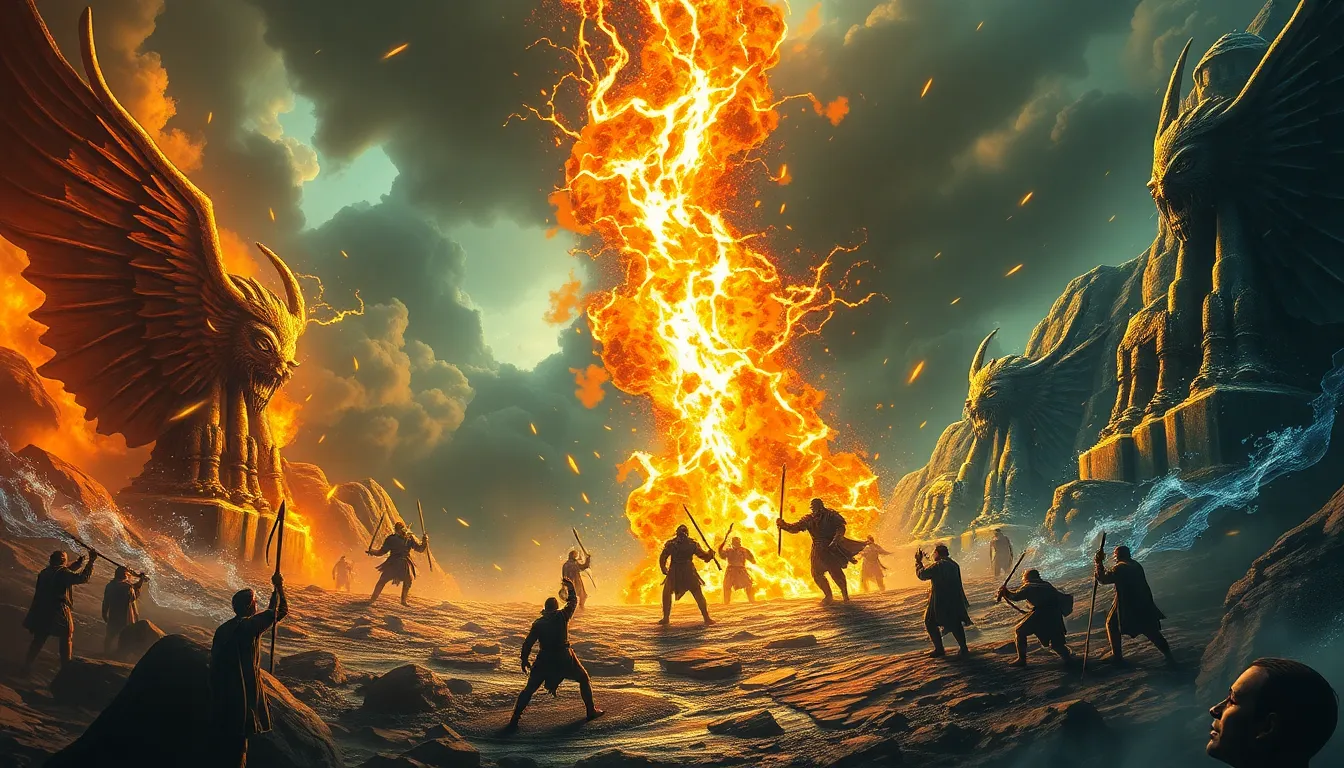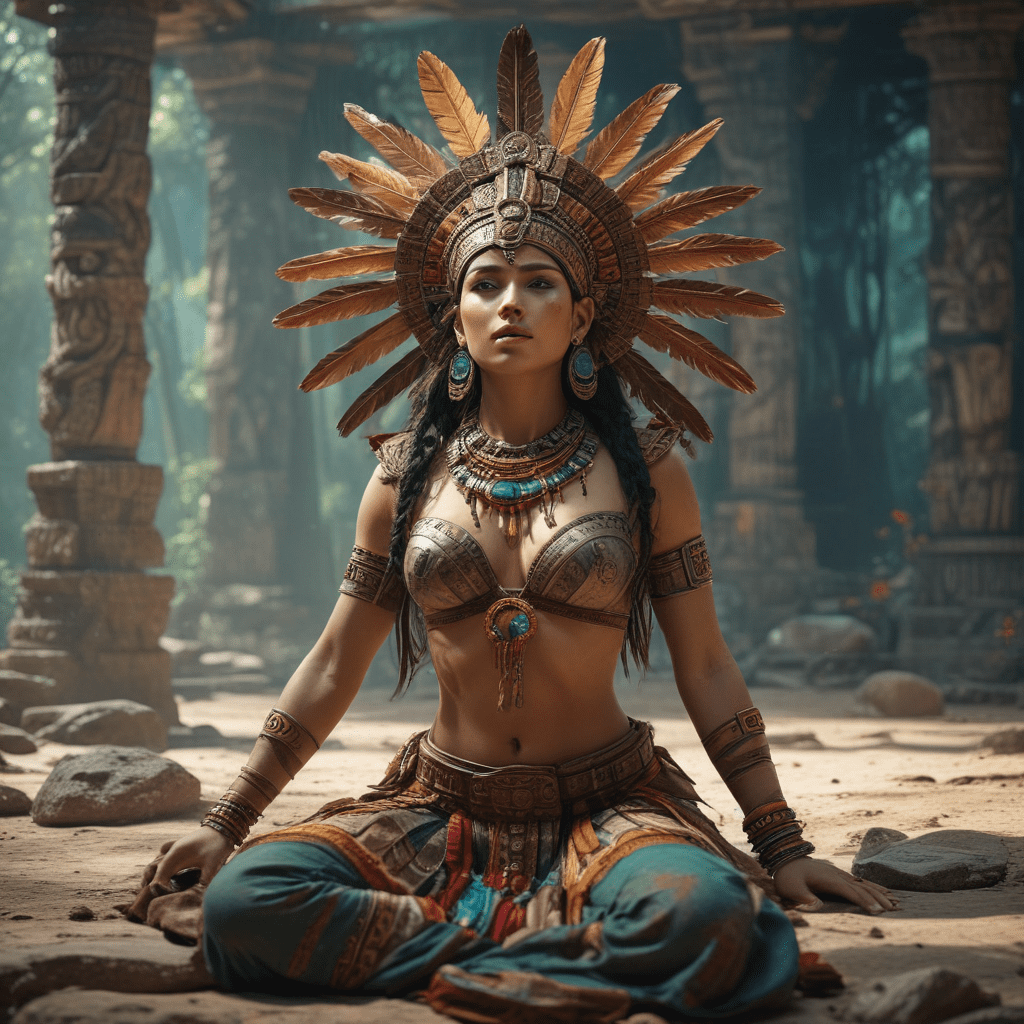The Ultimate Clash: Legendary Battles from Mythology Explained!
Introduction to Mythological Battles
Throughout history, battles have played a crucial role in the narratives of cultures around the world, especially in mythology. These fierce encounters, whether between gods, heroes, or mythical creatures, serve as allegories for the struggles of life, embodying the eternal conflict between good and evil, order and chaos. The significance of these legendary battles extends beyond mere entertainment; they shape the cultural identities and moral frameworks of societies, providing lessons that resonate through generations.
The Epic of Gilgamesh: The Battle Against Humbaba
One of the earliest recorded myths, the Epic of Gilgamesh, from ancient Mesopotamia, centers around the heroic King Gilgamesh and his quest for immortality. In his journey, he confronts Humbaba, the monstrous guardian of the Cedar Forest. This battle is not merely a physical confrontation; it is a clash of ideals. Gilgamesh, accompanied by his friend Enkidu, seeks to prove his strength and gain fame.
The themes of heroism and friendship are prevalent in this epic. Gilgamesh’s bravery is highlighted, but it is his bond with Enkidu that ultimately shapes his character. Together, they face overwhelming odds, showcasing the importance of companionship in overcoming challenges. Their victory over Humbaba illustrates the triumph of civilization over chaos, a recurring theme in many mythologies.
The Trojan War: Gods, Mortals, and the Fight for Honor
The Trojan War, immortalized in Homer’s “Iliad,” is a monumental conflict spurred by love, betrayal, and honor. The abduction of Helen by Paris leads to a decade-long siege of Troy, where key players include Achilles, Hector, and countless other heroes. This war is not merely a battle among mortals; it is heavily influenced by the whims of the gods, who take sides and intervene in crucial moments.
- Key Players:
- Achilles – The mightiest Greek warrior.
- Hector – The noble Trojan prince.
- Agamemnon – The leader of the Greek forces.
The divine intervention throughout the war highlights the belief that the gods are deeply entwined with human affairs, reflecting the ancient Greek understanding of fate and free will. The outcome of the Trojan War serves as a poignant reminder of the consequences of pride and the fragility of honor.
The Clash of Titans: The Titanomachy in Greek Mythology
The Titanomachy, the battle between the Titans and the Olympian gods, marks a significant turning point in Greek mythology. Led by Zeus, the Olympians rise against the Titans, who had ruled during the Golden Age. This epic conflict is emblematic of the struggle for power and the establishment of a new order in the cosmos.
This battle not only determines the fate of the universe but also reshapes the hierarchy of the divine. The victory of the Olympians implies the transition from primordial chaos to a structured pantheon, illustrating the themes of evolution and the inevitability of change in mythology.
Ragnarok: The Norse Apocalypse and the Final Battle
Ragnarok represents the end of the world in Norse mythology, a cataclysmic battle involving gods, giants, and various mythical creatures. It is foretold to be a time of great upheaval, leading to the death of key figures such as Odin and Thor. The events leading up to Ragnarok are characterized by betrayal, strife, and the breakdown of order.
- Key Figures:
- Odin – The Allfather, who sacrifices himself for knowledge.
- Thor – The god of thunder, battling the serpent Jörmungandr.
- Fenrir – The monstrous wolf destined to kill Odin.
The symbolic meaning of Ragnarok revolves around rebirth and renewal. Though it signifies destruction, it also heralds the dawn of a new world, illustrating the cyclical nature of existence and the idea that death is a precursor to new life.
The Ramayana: The War Between Rama and Ravana
The Ramayana, an ancient Indian epic, narrates the tale of Prince Rama and his battle against the demon king Ravana, who abducts his wife, Sita. This epic is rich in moral and ethical dilemmas as it explores themes of duty, righteousness, and the complexities of dharma (moral law).
Rama, as the ideal hero, represents virtue and justice, while Ravana, despite his power, embodies the consequences of unchecked desire and ego. The battle between them is not just a physical confrontation but a struggle for the very soul of righteousness.
The Mahabharata: The Great War of Kurukshetra
The Mahabharata, one of the longest epics in the world, tells the story of the conflict between the Pandavas and Kauravas at Kurukshetra. This war is monumental, encompassing not only a physical battle but also philosophical discourses, including the famous Bhagavad Gita.
The lessons learned from this epic are profound. The Mahabharata delves into the complexities of human nature, the moral ambiguity of war, and the consequences of one’s choices. It serves as a timeless reminder of the importance of justice, duty, and the pursuit of truth.
The Battle of the Gods: Egyptian Mythology’s Divine Conflicts
In Egyptian mythology, battles among the gods reflect the larger cosmic struggles between order and chaos. Key conflicts include the battles between Osiris, Set, and Horus, which symbolize the struggle for supremacy and the establishment of Ma’at (cosmic order).
These divine conflicts emphasize the themes of resurrection, renewal, and the cyclical nature of life. The defeat of Set by Horus embodies the triumph of order over chaos, reinforcing the importance of harmony in the universe.
Cultural Interpretations of Mythological Battles
Different cultures have their unique interpretations of legendary battles, often reflecting their societal values and beliefs. These narratives have significantly influenced art, literature, and modern media, providing rich material for storytelling.
- In art, mythological battles are often depicted in grand frescoes and sculptures.
- Literature has seen numerous retellings and adaptations of these epic conflicts.
- Modern media, including films and video games, continue to draw on these timeless themes.
These cultural interpretations not only preserve the stories but also allow new generations to explore the complexities of human experience through the lens of mythology.
Conclusion: The Enduring Legacy of Mythical Battles
Legendary battles from mythology continue to resonate today, serving as profound allegories for the human condition. They remind us of the struggles between good and evil, the complexities of moral choices, and the cyclical nature of existence. Understanding these stories in a contemporary context allows us to appreciate the depth of human experience and the timeless lessons embedded within these epic tales.




